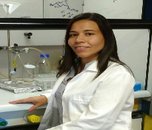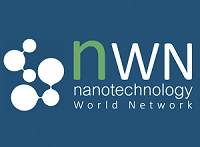Theme: Glycobiology: The Study of Sweet Life
Glycobiology 2018
The 4th Glycobiology World Congress will be held in Rome, Italy during September 17-19, 2018 organized by Conference series Llc Ltd Biochemistry Conferences will lay a idle platform for scientists, world-class professors, and glycobiologists to discuss an approach for glycobiology and its related research areas. International Glycobiology Conferences is designed to provide diverse and current education that will keep glycobiology professionals alongside of the issues related to research and development. The conference will impact an attractive moment to interact with professionals in the research field and therefore it takes a delight in opening a gate to meet young researchers and potential speakers where they can demonstrate their novel research and contributions in the field of glycobiology and biotechnology.
Glycobiology 2018 Conference will be an investigation of New research Innovation of Glycobiology and spread the most recent advancements and patterns in the field of Glycobiology and Glycochemistry, Proteomics, Systems Biology, Genomics, Precision Medicine, Lipidomics, Metabolomics, Bioinformatics, Genomics, structural biology and many more. Glycobiology is of enthusiasm to researchers in light of the fact that it might prompt enhancements in the field of research development and its allied technologies. Glycobiology as an order makes utilization of systematic procedures, for example Mass spectroscopy, chromatography, and protein structure prediction etc. Glycobiology permits researchers to gauge physiological impacts and to screen for unfavorable responses to tranquilizes
Glycobiology 2018 organizing Committee invites all the participants across the globe to attend the 4th Glycobiology World Congress during September 17-19, 2018 at Rome, Italy.
Glycobiology 2018 is designed to meet all renowned and eminent speakers from all around the globe with delegates, exhibitors, industry experts, work shop symposiums and student delegates from glycobiology and healthcare sectors to be a part of it.
Scientific Sessions:
Track: 1 Glycobiology and Glycochemistry
Glycobiology and Glycochemistry are the two main intertwined areas of Glycosciences, dealing with various aspects of glycans, including carbohydrate structure, biochemistry, biological functions and applications. This is necessary in order to sustain and advance the identification of key glycobiological aspects and the application of glycans and glyco-engineering strategies in the design of novel therapies to improve human health. The glycans (carbohydrates) form a diverse group of biomolecules which play active parts in most physiological processes. The field of structural glycobiology concerns the structures of the glycans themselves, the proteins which interact with them and the nature of the interactions between the two. Drug targeting is important for our understanding of human health and disease, and for development of new therapeutic strategies.
Related Conferences
Glycobiology Conferences | Glycobiology Meetings | Glycobiology Events | Glycobiology Conference 2018 | Glycobiology Symposium | Glycobiology Workshop | World Glycobiology Congress | Glycobiology 2018
3rd International Enzymology Conferences, March 05-06, 2018, London, UK; 12th International Metabolomics Conferences, May 14-15, 2018, Baltimore, USA; 13th Systems Biology Conferences, June 11-12, 2018 London, UK; 11th Edition of International Conference on Proteomics, March 22-23, 2018, London, UK; Biochemical Basis of Respiratory Disease, January 08-10, 2018, England; Shaping your career in Molecular Biosciences: Taking a wider view, January 15, 2018, London, UK; The Dynamic Cell III March 19-21, 2018, Manchester; New Horizons in ESCRT Biology, April 17-20, 2018, London; 30th Annual RNA Polymerase focused Meeting April 19-20, 2018, London, UK; Experimental techniques for studying proteins and lipids in Biological Membranes, May 15-16, 2018, UK; Structure and Mechanism of Membrane Proteins May17-18, 2018, UK; Small G Proteins in Cellular Signalling and Disease, July 09-12, 2018, Cambridge, UK
Track: 2 Genomics and Metabolomics
Genomics is the study of the genome in contrast to genetics which refers to the study of genes and their roles in inheritance. Genomics can be considered a discipline in genetics. It applies recombinant DNA, DNA sequencing methods and bioinformatics tools to sequence, assemble and analyze the function and structure of genomes with the complete set of DNA within a single cell of an organism. Advances in genomics have triggered a revolution in discovery-based research to understand even the most complex biological systems such as the brain. The field includes efforts to determine the entire DNA sequence of organisms and fine-scale genetic mapping.
Related Conferences
Glycobiology Conferences | Glycobiology Meetings | Glycobiology Events | Glycobiology Conference 2018 | Glycobiology Symposium | Glycobiology Workshop | World Glycobiology Congress | Glycobiology 2018
3rd International Enzymology Conferences, March 05-06, 2018, London, UK; 12th International Metabolomics Conferences, May 14-15, 2018, Baltimore, USA; 13th Systems Biology Conferences, June 11-12, 2018 London, UK; 11th Edition of International Conference on Proteomics, March 22-23, 2018, London, UK; Biochemical Basis of Respiratory Disease, January 08-10, 2018, England; Shaping your career in Molecular Biosciences: Taking a wider view, January 15, 2018, London, UK; The Dynamic Cell III March 19-21, 2018, Manchester; New Horizons in ESCRT Biology, April 17-20, 2018, London; 30th Annual RNA Polymerase focused Meeting April 19-20, 2018, London, UK; Experimental techniques for studying proteins and lipids in Biological Membranes, May 15-16, 2018, UK; Structure and Mechanism of Membrane Proteins May17-18, 2018, UK; Small G Proteins in Cellular Signalling and Disease, July 09-12, 2018, Cambridge, UK
Track: 3 Glycans in Diseases and Therapeutics
Glycomedicine plays major role in cell-cell adhesion i.e. a mechanism employed by cells of the immune system via sugar-binding proteins called lectins, which recognize specific carbohydrate moieties. Glycans (carbohydrate oligomers) are the so-called “building blocks” of carbohydrates, nucleic acids, proteins and lipids play major roles in many biological phenomena as well as in various pathophysiological processes. Many scientists in other fields of research have now realized that glycosylation, i.e. the addition of glycans to a protein backbone, is the most abundant post translational modification reactions and is an important field of research and sometimes they require a glycobiology and/or glycochemistry approach to be used.
Related Conferences
Glycobiology Conferences | Glycobiology Meetings | Glycobiology Events | Glycobiology Conference 2018 | Glycobiology Symposium | Glycobiology Workshop | World Glycobiology Congress | Glycobiology 2018
3rd International Enzymology Conferences, March 05-06, 2018, London, UK; 12th International Metabolomics Conferences, May 14-15, 2018, Baltimore, USA; 13th Systems Biology Conferences, June 11-12, 2018 London, UK; 11th Edition of International Conference on Proteomics, March 22-23, 2018, London, UK; Biochemical Basis of Respiratory Disease, January 08-10, 2018, England; Shaping your career in Molecular Biosciences: Taking a wider view, January 15, 2018, London, UK; The Dynamic Cell III March 19-21, 2018, Manchester; New Horizons in ESCRT Biology, April 17-20, 2018, London; 30th Annual RNA Polymerase focused Meeting April 19-20, 2018, London, UK; Experimental techniques for studying proteins and lipids in Biological Membranes, May 15-16, 2018, UK; Structure and Mechanism of Membrane Proteins May17-18, 2018, UK; Small G Proteins in Cellular Signalling and Disease, July 09-12, 2018, Cambridge, UK
Track: 4 Cancer Biology and Structural Biology
Cancer is caused when cells within the body accumulate genetic mutations and start to grow in an uncontrolled manner. Understanding how cancer develops and progresses including how glycan mutations drive the growth and spread of cancer cells and how tumours interact with their surrounding environment is vital for the discovery of new targeted cancer treatments. Researchers are working to understand the process by which cancer spreads known as metastasis with the aim of developing new treatments that prevent cancer spread or target metastatic tumours. Scientists believe the glycolipid complexity arises in part because tumours develop through a process of evolution by natural selection just as species of animals and plants have done.
Related Conferences
Glycobiology Conferences | Glycobiology Meetings | Glycobiology Events | Glycobiology Conference 2018 | Glycobiology Symposium | Glycobiology Workshop | World Glycobiology Congress | Glycobiology 2018
3rd International Enzymology Conferences, March 05-06, 2018, London, UK; 12th International Metabolomics Conferences, May 14-15, 2018, Baltimore, USA; 13th Systems Biology Conferences, June 11-12, 2018 London, UK; 11th Edition of International Conference on Proteomics, March 22-23, 2018, London, UK; Biochemical Basis of Respiratory Disease, January 08-10, 2018, England; Shaping your career in Molecular Biosciences: Taking a wider view, January 15, 2018, London, UK; The Dynamic Cell III March 19-21, 2018, Manchester; New Horizons in ESCRT Biology, April 17-20, 2018, London; 30th Annual RNA Polymerase focused Meeting April 19-20, 2018, London, UK; Experimental techniques for studying proteins and lipids in Biological Membranes, May 15-16, 2018, UK; Structure and Mechanism of Membrane Proteins May17-18, 2018, UK; Small G Proteins in Cellular Signalling and Disease, July 09-12, 2018, Cambridge, UK
Track: 5 Mass Spectrometry Analysis
Mass spectrometry (MS) based proteomics allows the sensitive and accurate quantification of almost complete proteomes of complex biological fluids and tissues. At the moment, however, the routinely usage of MS-based proteomics is prevented and complicated by the very complex work flow comprising sample preparation, chromatography, MS measurement followed by data processing and evaluation. The new technologies, products and assays developed by Precision Proteomics could help enabling and establishing mass spectrometry (MS) - based proteomics in academic and pharmaceutical research as well as in clinical diagnostics.
Related Conferences
Glycobiology Conferences | Glycobiology Meetings | Glycobiology Events | Glycobiology Conference 2018 | Glycobiology Symposium | Glycobiology Workshop | World Glycobiology Congress | Glycobiology 2018
3rd International Enzymology Conferences, March 05-06, 2018, London, UK; 12th International Metabolomics Conferences, May 14-15, 2018, Baltimore, USA; 13th Systems Biology Conferences, June 11-12, 2018 London, UK; 11th Edition of International Conference on Proteomics, March 22-23, 2018, London, UK; Biochemical Basis of Respiratory Disease, January 08-10, 2018, England; Shaping your career in Molecular Biosciences: Taking a wider view, January 15, 2018, London, UK; The Dynamic Cell III March 19-21, 2018, Manchester; New Horizons in ESCRT Biology, April 17-20, 2018, London; 30th Annual RNA Polymerase focused Meeting April 19-20, 2018, London, UK; Experimental techniques for studying proteins and lipids in Biological Membranes, May 15-16, 2018, UK; Structure and Mechanism of Membrane Proteins May17-18, 2018, UK; Small G Proteins in Cellular Signalling and Disease, July 09-12, 2018, Cambridge, UK
Track: 6 Glycoconjugates, Glycomics and Transcriptomics
Glycomics is a discipline in genetics that applies recombinant DNA, DNA sequencing methods and bioinformatics to sequence, assemble and analyze the function and structure of glycans along with the genomes. Transcriptomics is a relatively young branch of omics science concerned with the systematic study of the chemical products or metabolites that cells and organisms generate. Indeed, most human metabolomic studies published today, even those exploiting the latest and most sensitive LC-MS/MS technologies, typically succeed in identifying or characterizing fewer than 100 compounds. This corresponds to less than 1% of the known human metabolome.
Related Conferences
Glycobiology Conferences | Glycobiology Meetings | Glycobiology Events | Glycobiology Conference 2018 | Glycobiology Symposium | Glycobiology Workshop | World Glycobiology Congress | Glycobiology 2018
3rd International Enzymology Conferences, March 05-06, 2018, London, UK; 12th International Metabolomics Conferences, May 14-15, 2018, Baltimore, USA; 13th Systems Biology Conferences, June 11-12, 2018 London, UK; 11th Edition of International Conference on Proteomics, March 22-23, 2018, London, UK; Biochemical Basis of Respiratory Disease, January 08-10, 2018, England; Shaping your career in Molecular Biosciences: Taking a wider view, January 15, 2018, London, UK; The Dynamic Cell III March 19-21, 2018, Manchester; New Horizons in ESCRT Biology, April 17-20, 2018, London; 30th Annual RNA Polymerase focused Meeting April 19-20, 2018, London, UK; Experimental techniques for studying proteins and lipids in Biological Membranes, May 15-16, 2018, UK; Structure and Mechanism of Membrane Proteins May17-18, 2018, UK; Small G Proteins in Cellular Signalling and Disease, July 09-12, 2018, Cambridge, UK
Track: 7 Glycobiology in Lipid Science
Glycans are components of many bio-therapeutic agents, ranging from natural products to molecules based on rational design to recombinant glycoproteins. The glycan components of these agents can be important determinants of their biological activity and therapeutic efficacy. Biochemistry and Glycobiology involves a multidisciplinary study of carbohydrate-binding proteins (lectins), glycolipids and some other plant proteins that are capable of interacting with endogenous or foreign (macro) molecules.
Related Conferences
Glycobiology Conferences | Glycobiology Meetings | Glycobiology Events | Glycobiology Conference 2018 | Glycobiology Symposium | Glycobiology Workshop | World Glycobiology Congress | Glycobiology 2018
3rd International Enzymology Conferences, March 05-06, 2018, London, UK; 12th International Metabolomics Conferences, May 14-15, 2018, Baltimore, USA; 13th Systems Biology Conferences, June 11-12, 2018 London, UK; 11th Edition of International Conference on Proteomics, March 22-23, 2018, London, UK; Biochemical Basis of Respiratory Disease, January 08-10, 2018, England; Shaping your career in Molecular Biosciences: Taking a wider view, January 15, 2018, London, UK; The Dynamic Cell III March 19-21, 2018, Manchester; New Horizons in ESCRT Biology, April 17-20, 2018, London; 30th Annual RNA Polymerase focused Meeting April 19-20, 2018, London, UK; Experimental techniques for studying proteins and lipids in Biological Membranes, May 15-16, 2018, UK; Structure and Mechanism of Membrane Proteins May17-18, 2018, UK; Small G Proteins in Cellular Signalling and Disease, July 09-12, 2018, Cambridge, UK
Track: 8 Glycans in Vaccine Development
Glycans are at the center of many disorders and diseases sparking the possibility of exploiting them for therapeutic and diagnostic purposes. There are many biochemical pathways and diseases in which glycans are intricately involved. Gaging the vast potential and the promise that glycobiology holds, many pharma and biotech companies have already started allocating their R&D budget to it. Presently, with our drug arsenal fast depleting against drug resistant and mutant pathogens, glycobiology hold an untapped source of new candidate drugs.
Related Conferences
Glycobiology Conferences | Glycobiology Meetings | Glycobiology Events | Glycobiology Conference 2018 | Glycobiology Symposium | Glycobiology Workshop | World Glycobiology Congress | Glycobiology 2018
3rd International Enzymology Conferences, March 05-06, 2018, London, UK; 12th International Metabolomics Conferences, May 14-15, 2018, Baltimore, USA; 13th Systems Biology Conferences, June 11-12, 2018 London, UK; 11th Edition of International Conference on Proteomics, March 22-23, 2018, London, UK; Biochemical Basis of Respiratory Disease, January 08-10, 2018, England; Shaping your career in Molecular Biosciences: Taking a wider view, January 15, 2018, London, UK; The Dynamic Cell III March 19-21, 2018, Manchester; New Horizons in ESCRT Biology, April 17-20, 2018, London; 30th Annual RNA Polymerase focused Meeting April 19-20, 2018, London, UK; Experimental techniques for studying proteins and lipids in Biological Membranes, May 15-16, 2018, UK; Structure and Mechanism of Membrane Proteins May17-18, 2018, UK; Small G Proteins in Cellular Signalling and Disease, July 09-12, 2018, Cambridge, UK
Track: 9 Glycans in Structural and Computational Systems Biology
Glycan sequences cannot be described by a simple linear one-letter code as each pair of monosaccharides can be linked in several ways and branched structures can be formed. Few of the bioinformatics algorithms developed for genomics or proteomics can be directly adapted for glycomics. The development of algorithms, which allow a rapid, automatic interpretation of mass spectra to identify glycan structures, is currently the most active field of research. The development and use of informatics tools and databases for glycobiology and glycomics research has increased considerably in recent years. In terms of bioinformatics in glycobiology, there are several paths of research that are currently in progress.
Related Conferences
Glycobiology Conferences | Glycobiology Meetings | Glycobiology Events | Glycobiology Conference 2018 | Glycobiology Symposium | Glycobiology Workshop | World Glycobiology Congress | Glycobiology 2018
3rd International Enzymology Conferences, March 05-06, 2018, London, UK; 12th International Metabolomics Conferences, May 14-15, 2018, Baltimore, USA; 13th Systems Biology Conferences, June 11-12, 2018 London, UK; 11th Edition of International Conference on Proteomics, March 22-23, 2018, London, UK; Biochemical Basis of Respiratory Disease, January 08-10, 2018, England; Shaping your career in Molecular Biosciences: Taking a wider view, January 15, 2018, London, UK; The Dynamic Cell III March 19-21, 2018, Manchester; New Horizons in ESCRT Biology, April 17-20, 2018, London; 30th Annual RNA Polymerase focused Meeting April 19-20, 2018, London, UK; Experimental techniques for studying proteins and lipids in Biological Membranes, May 15-16, 2018, UK; Structure and Mechanism of Membrane Proteins May17-18, 2018, UK; Small G Proteins in Cellular Signalling and Disease, July 09-12, 2018, Cambridge, UK
Track: 10 Structural Bioinformatics and Proteomics
Glycobiology along with the field of proteomics, particularly the application of mass spectrometry analysis to protein samples, is well-established and growing rapidly. Proteomics studies along with glycans generate large volumes of raw experimental data and inferred biological results. To facilitate the dissemination of these data, centralized data repositories have been developed that make the data and results accessible to proteomics researchers and biologists alike. Experimental analysis of proteomics data repositories focuses exclusively on freely-available, centralized data resources that disseminate or store experimental mass spectrometry data and results.
Related Conferences
Glycobiology Conferences | Glycobiology Meetings | Glycobiology Events | Glycobiology Conference 2018 | Glycobiology Symposium | Glycobiology Workshop | World Glycobiology Congress | Glycobiology 2018
3rd International Enzymology Conferences, March 05-06, 2018, London, UK; 12th International Metabolomics Conferences, May 14-15, 2018, Baltimore, USA; 13th Systems Biology Conferences, June 11-12, 2018 London, UK; 11th Edition of International Conference on Proteomics, March 22-23, 2018, London, UK; Biochemical Basis of Respiratory Disease, January 08-10, 2018, England; Shaping your career in Molecular Biosciences: Taking a wider view, January 15, 2018, London, UK; The Dynamic Cell III March 19-21, 2018, Manchester; New Horizons in ESCRT Biology, April 17-20, 2018, London; 30th Annual RNA Polymerase focused Meeting April 19-20, 2018, London, UK; Experimental techniques for studying proteins and lipids in Biological Membranes, May 15-16, 2018, UK; Structure and Mechanism of Membrane Proteins May17-18, 2018, UK; Small G Proteins in Cellular Signalling and Disease, July 09-12, 2018, Cambridge, UK
Track: 11 Glycosciences and Monosaccharides
Glycobiology is the study of the structure, biosynthesis and biology of saccharides that are widely distributed in nature. Sugars or saccharides are essential components of all living things and aspects of the various roles they play in biology and are researched in various medical, biochemical and biotechnological fields. The study of glycan structures is also complicated by the lack of a direct template for their biosynthesis, contrary to the case with proteins where their amino acid sequence is determined by their corresponding gene.
Related Conferences
Glycobiology Conferences | Glycobiology Meetings | Glycobiology Events | Glycobiology Conference 2018 | Glycobiology Symposium | Glycobiology Workshop | World Glycobiology Congress | Glycobiology 2018
3rd International Enzymology Conferences, March 05-06, 2018, London, UK; 12th International Metabolomics Conferences, May 14-15, 2018, Baltimore, USA; 13th Systems Biology Conferences, June 11-12, 2018 London, UK; 11th Edition of International Conference on Proteomics, March 22-23, 2018, London, UK; Biochemical Basis of Respiratory Disease, January 08-10, 2018, England; Shaping your career in Molecular Biosciences: Taking a wider view, January 15, 2018, London, UK; The Dynamic Cell III March 19-21, 2018, Manchester; New Horizons in ESCRT Biology, April 17-20, 2018, London; 30th Annual RNA Polymerase focused Meeting April 19-20, 2018, London, UK; Experimental techniques for studying proteins and lipids in Biological Membranes, May 15-16, 2018, UK; Structure and Mechanism of Membrane Proteins May17-18, 2018, UK; Small G Proteins in Cellular Signalling and Disease, July 09-12, 2018, Cambridge, UK
Market Report:
Glycobiology 2018 welcomes attendees, presenters and exhibitors from all over the world to Rome, Italy. We are delighted to invite you all to attend and register for the “4th Glycobiology World Congress which is going to be held during September 17-19, 2018 in Rome, Italy.
The organizing committee is gearing up for an exciting and informative conference program including plenary lectures, symposia, workshops on a variety of topics, poster presentations and various programs for participants from all over the world. We invite you to join us at the Glycobiology 2018 where you will be sure to have a meaningful experience with scholars from around the world. All the members of the Glycobiology 2018 organizing committee look forward to meeting you in Rome, Italy.
Importance & Scope:
Most aspects of Glycobiology depend on successful researches. Glycobiology 2018 aims to bring together leading academic scientists, researchers and research scholars to exchange and share their experiences and research results about all aspects of Glycobiology leading way to the unraveled. It also provides the chance for researchers, practitioners and educators to present and discuss the most recent innovations, trends, and concerns, practical challenges encountered and the solutions adopted in the fields of Glycobiology.
Glycobiology 2018 is a quint essential platform for presenting research about marketing, exchanging ideas about it and thus, contributes to the dissemination of knowledge for the benefit of both the academia and business. Glycobiology is where the future intersects. This event brings together eminent researchers and associates to explore the emerging field. We bring together Knowledge, creative, and technology leaders from the Biology industry for the most current and relevant discussions.
Why Rome?
Rome is a city and special commune in Italy. Rome is the capital of Italy and also of the homonymous province and of the region of Lazio. With 2.7 million residents in 1,285.3 km2 (496.3 sq mi), it is also the country’s largest and most populated commune and fourth-most populous city in the European Union by population within city limits. The urban area of Rome extends beyond the administrative city limits with a population of around 3.8 million. Between 3.2 and 4.2 million people live in Rome metropolitan area. The city is located in the central-western portion of the Italian Peninsula, on the Tiber within Lazio (Latium). Rome is the only city in the world to contain in its interior a whole state; the enclave of Vatican City. Rome has a status of theglobal city. Rome was the 11th-most-visited city in the world, 3rd most visited in the European Union, and the most popular tourist attraction in Italy. The city is one of Europe’s and the world’s most successful city “brands”, both in terms of reputation and assets.
Its historic centre is listed by UNESCO as a World Heritage Site. Monuments and museums such as the Vatican Museums and the Colosseum are among the world’s most visited tourist destinations with both locations receiving millions of tourists a year. Rome hosted the 1960 Summer Olympics. Although associated today only with Latin, ancient Rome was in fact multilingual. In highest antiquity Sabine tribes shared the area of what is today Rome with Latin tribes. The Sabine language was one of the Italic group of ancient Italian languages, along with Etruscan, which would have been the main language of the last three kings who ruled the city till the founding of the Republic in 509 BC. Urganilla, or Plautia Urgulanilla, wife of Emperor Claudius, is thought to have been a speaker of Etruscan many centuries after this date, according to Suetonius’ entry on Claudius. However Latin, in various evolving forms, was the main language of classical Rome, but as the city had immigrants, slaves, residents, ambassadors from many parts of the world it was also multilingual.
Glycobiology Market Global Forecast to 2019: The Glycobiology market will reach $928.11 million by 2019, growing at a CAGR of 12.62% during the forecast period (2014–2019). This report segment the global Glycobiology market by application, end users, products, and geographies. According to the World Bank, funding for research and development activities in Asia was about $158.94 billion in 2001 and increased to $329.31 billion in 2010. Similarly, in the U.S., overall funding for research and development was about $291.77 billion in 2001, which increased to $428.94 billion in 2010. Increased funding activities are expected to positively impact the growth of the Glycobiology enzymes, instruments, kits, and reagents market. A combination of bottom-up and top-down approaches were used to calculate market sizes and growth rates of the global Glycobiology enzymes. Secondary information was used to identify overall revenue, geographic reach, and product portfolios of market players. [Source: Ref3]
Conference Highlights:
• Glycobiology and Glycochemistry
• Genomics and Metabolomics
• Structural Bioinformatics and Proteomics
• Glycoconjugates, Glycomics and Transcriptomics
• Glycosciences and Monosaccharides
• Glycobiology in Lipid Science
• Mass Spectrometry Analysis
• Glycomics and Metabolomics
• Glycobiology and Biotechnology
• Glycans in Diseases and Therapeutics
• Cancer Biology and Structural Biology
• Glycans in Vaccine Development
• Glycans in Structural and Computational Systems Biology
Why to attend???
MEET YOUR TARGET MARKET with members from around the world focused on learning about Biological research and growing market, this is your single best opportunity to reach the largest assemblage of participants from the scientific community. Conduct demonstrations, distribute information, meet with current and potential customers, and make a splash with a new product line, and receive name recognition at this 3-day event. World-renowned speakers, the most recent techniques, tactics, and the newest updates in Glycobiology growing market are hallmarks of this conference.
Be Part of it!
• This conference focusing on all the major aspects in the fields of Glycobiology and its allied research.
• It would be beneficial for all the students who ever willing to enter into research to the respective fields.
• As bringing the major research to the market and making it to utility are major focus for all the companies, this conference would be opportunity for the people in the respective fields.
Major Glycobiology Associations around the Globe
Glyconet Glycobiotechnology Network
Glycoscience Graduate School
Mizutani Foundation for Glycoscience
The Japanese Society of Carbohydrate Research
Alberta Glycomics Centre
Copenhagen Center for Glycomics
CKSP: Center of Know-how for Sugars and Polysaccharides, Ben-Gurion University
Laboratory of Carbohydrate Chemistry, Institute of Bioorganic Chemistry, Russian Academy of Science
Glycoprotein Structure/Function Group, Birkbeck College
Oxford Glycobiology Institute
Centre for Glycobiology, University of Liverpool
IBS: Institut de Biologie Structurale
Glycoscience Team, National Centre for Biomedical Engineering Science, National University of Ireland, Galway
Major Glycobiology Related Associations
Glycosciences Laboratory
Oxford Glycobiology Institute
Glycobiology Group
Glycotechnology Core Resource
Glycobiology Research and Training Center
Glycomics Center
Heparin Home Page, Rensselaer Polytechnic Institute
Resource for Integrated Glycotechnology
Institute of Molecular Biomembrane and Glycobiology
Target Audience:
Directors/Managers & Business Delegates, Director of Laboratories, Universities, Industries, Investigators, Post-Doctoral Fellows, Research and Diagnostic Laboratories, Clinical Fellows, Students and Biomedical Research companies.
Academia 60%
Industry 30%
Others 10%
Glance at Market of Glycobiology:
The technological progress in biochemistry and molecular biology has played a significant role in the development of the glycobiology market during the last decade. Also, the improvements in analytical instruments, and data processing and analysis software have contributed significantly in the advancement of the glycobiology field. The presence of research funding and government support for conducting research and commercialization of the products in the glycobiology market is the primary driver for the growth of this market. Glycobiology science is used extensively in biomarker discovery and drug assessment. Thus, the rapid growth experienced by pharmaceutical and biotechnology industries is assisting the growth of the glycobiology market.
The global glycobiology market was valued at $512.38 million in 2014 and poised to grow at a CAGR of 12.62% between 2012 and 2019, to reach $928.11 million in 2019. The rapid increase in research and development expenditure by pharmaceutical and biotech companies, and increased funding in proteomics and glycobiology research will be the two most important growth drivers for this market in the forecast period (2012–2019). Geographic analysis reveals that North America accounted for the largest share of the global glycomics market in 2014, due to increasing funding for proteomics and glycomics research. For instance, in August 2013, the National Institutes of Health (NIH) provided $5.5 million to the National Center for Functional Glycomics (NCFG) for research into the identification of glycans and complex carbohydrates using glycan microarrays. Similarly, in 2011, the University Of Nevada School Of Medicine received $10 million for glycobiology research from NIH. [Source: Ref2]
The major players in this market include Agilent Technologies (U.S.), Bruker Corp. (U.S.), Danaher Corp. (U.S.), New England Biolabs (U.S.), Prozyme Inc. (U.S.), Shimadzu Corp. (Japan), Sigma-Aldrich Corp. (U.S.), Takara Bio (Japan), Thermo Fisher Scientific (U.S.), and Waters Corp. (U.S). [Source: Ref1]
Conference Highlights
- Glycobiology and Glycochemistry
- Genomics and Metabolomics
- Glycans in Diseases and Therapeutics
- Mass Spectrometry Analysis
- Glycoconjugates, Glycomics and Transcriptomics
- Glycobiology in Lipid Science
- Glycans in Vaccine Development
- Glycans in Structural and Computational Systems Biology
- Structural Bioinformatics and Proteomics
- Glycosciences and Monosaccharides
- Cancer Biology and Structural Biology
To share your views and research, please click here to register for the Conference.
To Collaborate Scientific Professionals around the World
| Conference Date | September 17-19, 2018 | ||
| Sponsors & Exhibitors |
|
||
| Speaker Opportunity Closed | |||
| Poster Opportunity Closed | Click Here to View | ||
Useful Links
Special Issues
All accepted abstracts will be published in respective Our International Journals.
Abstracts will be provided with Digital Object Identifier by





































































































































